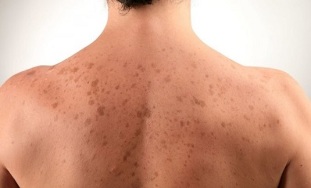With the modern development of medicine and the development of a large amount of research, scientists cannot completely determine the real reason for the development of scaly lichen. Psoriasis is a disease of the skin and tissues around the joints. The disease is characterized by a non-infectious course, with papules and red spots that are easy to merge. These formations are dry, scaly, and rise above the surface of the skin, representing a chronic local process. Microscopic examination can identify a large number of keratinocytes, immune system cells (T lymphocytes and macrophages), and a proliferation of a rich blood vessel network.
With the development of medicine, psoriasis and its causes have been actively studied, but no one has determined the ultimate cause of its appearance.
Scientists have identified several main foundations for the development of pathology:
- Genetics-The genetic theory of the appearance of psoriasis is based on the fact that if an ancestor or close relative has the disease, if one of the parents is sick, the offspring will appearThe risk of psoriasis is equal to 25%. With the development of the disease of both parents, the risk of its occurrence in the offspring increases to 70%. One possible choice is when a healthy child is born to a sick parent, but after a while, under the influence of the above factors, the disease develops in his body.
- Immune Deficiency-After examining the histological material of patients with psoriasis, scientists discovered that there are a large number of immune cells accumulating in the epidermis. At the same time, a specific antibody-Munro microabscess (accumulation of intercellular fluid, white blood cells, and macrophages) was found on the surface of the epidermis. Routine blood tests showed an increase in the number of white blood cells (T helper cells), which fully explained the autoimmune nature of the disease.
- Viral lesions-In this case, it means infection with retrovirus. This strain introduces its own tRNA chain into the host cell, replacing its genetic code with a virus. It is manifested by the overproduction and reproduction of immature and undifferentiated dermal cells.
An interesting fact is that psoriasis treatment based on autoimmune theory aims to reduce the number of immune cells (including T helper cells). In psoriasis infected with HIV/AIDS, the number of these cells is reduced to the limit and the risk of psoriasis increases. Further investigation of this fact can completely refute the autoimmune theory of the development of psoriasis.
Factors in the development of psoriasis

What causes psoriasis? There are several stimulating factors that have a negative impact on the body:
- Stress-This factor is the trigger for the outbreak of psoriasis, and it is also the link of the final rash. The rash occurs under the influence of the reduction of the rash. This factor is one of the main factors, because the onset of psoriasis occurs precisely due to extreme fatigue, psychological trauma and nervousness in 50% of cases. With the remission of psoriasis, any mental shock can cause relapse.
- Infection-A group of diseases, as they progress, the main focus of psoriasis rash appears. Such diseases include: all infectious diseases of the upper respiratory tract, bacterial and fungal infections affecting the skin, and mononucleosis. In patients with psoriasis, a large number of pathogens (beta-hemolytic streptococcus and Staphylococcus aureus) are confirmed. Candidiasis is a process of fungal infection, and psoriasis occurs most often.
- External influence-A large number of patients attribute the appearance of psoriasis to external physical factors. The most common are: mechanical skin damage, burns, hypothermia and frostbite;
- Endocrine diseases-This group of diseases is accompanied by impaired functions of the entire body. Due to frequent changes in hormone levels related to growth, pregnancy, menstrual cycle, and menopause, this factor is most common in women. In diabetic patients, the metabolism is severely disturbed, and the continuous excess glucose has a negative impact on human tissues and organs, leading to the development of other diseases.
- Toxins-Another cause of psoriasis in the body. Its appearance is related to food poisoning, working in factories or factories, and the abuse of certain products (citrus fruits, coffee, chocolate). Alcohol and smoking have toxic effects and cause many diseases, including psoriasis; The pathogenic effects of
- includetaking drugs.Facts have proved that a small number of patients start to develop psoriasis when taking the following drugs: NSAIDs, β-blockers, potentiating drugs (vitamin C, B, D), cytostatics, and antibiotics (cephalosporins).
Prevent psoriasis
Many factors contribute to the development of psoriasis. The basic theory has not yet been determined, and any preventive measures should be comprehensive and targeted. Patients should reconsider their lifestyle. If necessary, change your place of residence to a more environmentally friendly area.
It is recommended to avoid stressful situations. You can take antidepressants and tranquilizers. The diet should include more fiber, non-allergenic fruits and vegetables, meat, and fish. When treating concomitant diseases, you must get rid of bad habits and consult your doctor about alternative treatments. Receive treatment in a specialized nursing home.























